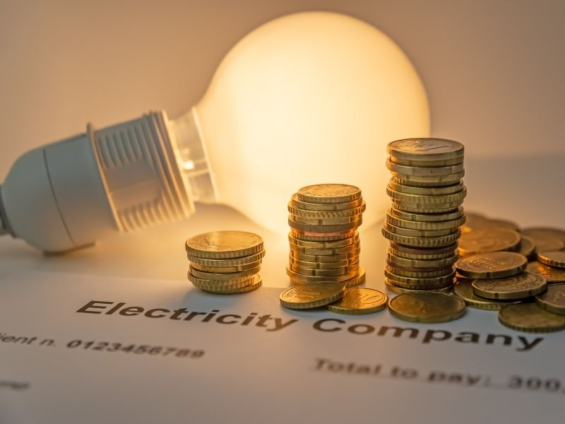Principal Statistician at the Ghana Statistical Service (GSS), John Foster Agyaho, says efforts by the Public Utilities Regulatory Commission (PURC) to mitigate the effects of the utility tariff upward adjustment may rather create more problems for the citizenry.
The PURC had announced that starting September 1, electricity tariffs and water tariffs will see an upward adjustment of 27.15% and 21.55% respectively; however, residential consumers are expected to pay higher tariffs in comparison to industrial consumers.
The PURC had defended this position by stating that this is geared towards ensuring that Ghanaians are incentivized to enter into production rather than just the social use of these utilities.
Speaking to JoyNews, the Director of Research and Corporate Affairs at PURC, Dr. Eric Kofi Obutey had explained that this was a way to sustain businesses especially during these tough times.
“What we are trying to do is to realign the tariff in such a way that we’ll get people to use the electricity for productive use and not just for social activities. So we try to encourage production, we try to encourage employment, for which reason we try to lower the tariffs for industrial class as compared to residential class,” he said.
However, reacting to the PURC’s stance, John Agyaho noted that despite businesses receiving the softer end of the deal, they would still adjust prices to take advantage of the upward adjustment, thus further contributing to inflation and worsening the plight of Ghanaians.
“I mean, we may put in the mitigating factor, that’s fine. And as we keep announcing these days… apart from the real factors that are affecting inflation, there’s this behavourial effect of the Ghanaian market women and market men.
“Yes, PURC may put in measures to try to cushion workers so they don’t go out of business, but the seamstress, the tailor, the shoe repairer, the TV repairer or the Fridge repairer once they’ve heard about increment in utility tariffs they also take advantage of the situation and even if they are not adversely affected, they go ahead to increase the prices.
“That’s aside the actual …effect we are envisaging. So yes, they may put in the process to make sure people don’t go out of business, but certainly the prices of goods will go up,” he explained.
Latest Stories
-
2024 WAFCON: Ghana drawn against defending champions South Africa in Group C
19 mins -
Photos from DW-JoyNews street debate on ‘galamsey’
1 hour -
Mimmy Yeboah: Blending heritage with global sophistication, confidence redefined through couture
1 hour -
Akufo-Addo commissions 97-km Tema-Mpakadan railway line
2 hours -
Majority requests recall of Parliament
2 hours -
Kanzlsperger and Professor Quartey support WAFA with medical Donation
2 hours -
Gideon Boako donates 10 industrial sewing machines to Yamfo Technical Institute
2 hours -
‘Golden Boy’ Abdul Karim Razak honored at WAFU-B general assembly
3 hours -
Buipewura Jinapor secures Vice Presidential position in National House of Chiefs with record votes
3 hours -
2024 election: I want results to come out like ‘milk and honey’ – Toobu
3 hours -
Ghana’s Henry Bukari hands over chairmanship of ECOWAS Brown Card Council of Bureaux
3 hours -
Residents of Dome-Kwabenya on edge ahead of December elections
3 hours -
Moffy drops new single ‘Wo’, blending culture and modernity
4 hours -
Don’t bring soldiers to polling stations – Martin Kpebu
4 hours -
Ogyeahohuo Yaw Gyebi II retained as President of National House of Chiefs
4 hours

